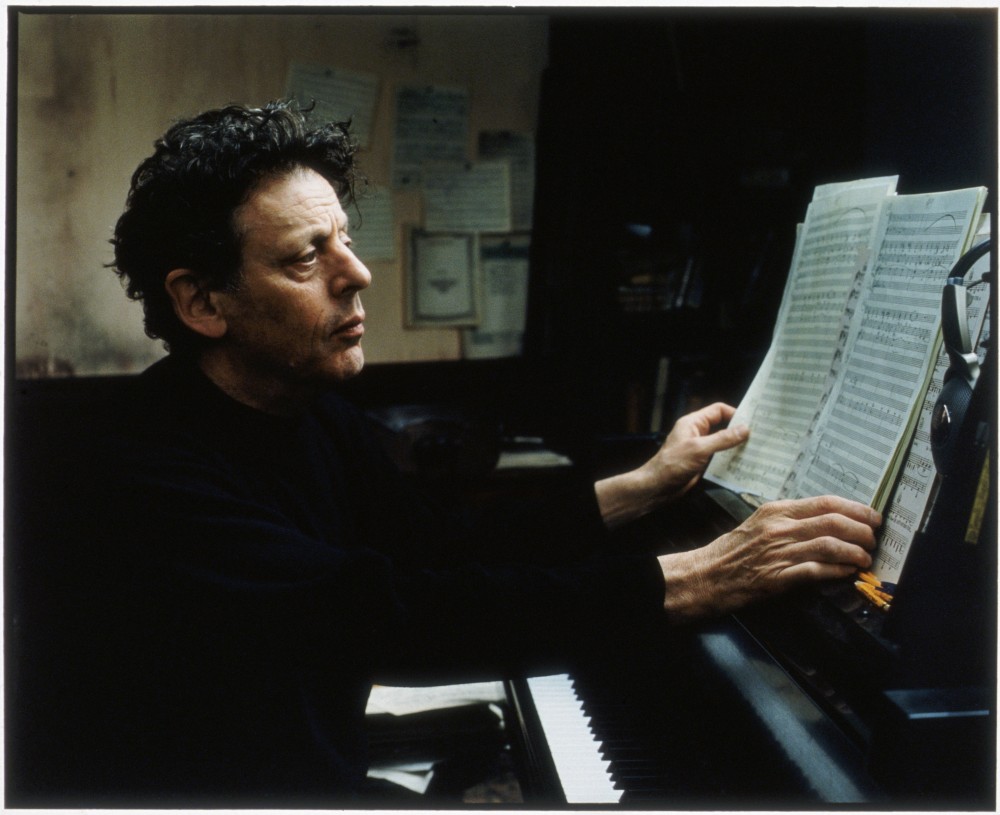Tuesday, October 15, 2013
Composer Philip Glass discusses his music and how the process of artistic collaboration with exceptionally creative minds (including Robert Wilson, Allen Ginsberg, Ravi Shankar, and Godfrey Reggio, among many others), has shaped his musical output. Their artistic partnerships have undoubtedly had an impact on New York cultural landscape and, in the process, have contributed noticeably to the creative economy of the city. As recently reported by the New Yorker, Philip Glass is actively composing and creating new music. To find more of Glass’ current work, visit this website.
Also in the program, Claire Chase, MacArthur Prize-winning flutist and director of the International Contemporary Ensemble (ICE) will moderate a question-and-answer session with Glass and the audience. Chase will also perform a piece for flute by Glass.
This program is part of the Lloyd Old and Constance Old Lectures, which is a series of talks and debates by major cultural figures addressing the changing consumption, creation, contexts, and valuations of today’s music. They are presented in midtown Manhattan by the Barry S. Brook Center for Music Research and Documentation of the Graduate Center of the City University of New York. Also, this lecture is part of a yearlong initiative, beginning in the Fall 2013 called The Future of New York’s Creative Economy. Programs, under the motto “The life of the mind in the heart of the city,” will explore the city’s creative industries with eminent artists, journalists, cultural leaders, and scholars.
[youtube]https://www.youtube.com/watch?v=VoOQkhXvtDc[/youtube] Philip Glass: The Creative PulseTuesday, October 15, 2013, 6:30pm The Elebash Recital Hall The Graduate Center 365 Fifth Avenue New York, NY 10016 Free. Reservaions Required 212-817-8215 www.gc.cuny.edu/culturalcapital
Born in Baltimore, Maryland, Philip Glass is a graduate of the University of Chicago and the Juilliard School. In the early 1960s, Glass spent two years of intensive study in Paris with Nadia Boulanger and while there, earned money by transcribing Ravi Shankar’s Indian music into Western notation. By 1974, Glass had a number of innovative projects, creating a large collection of new music for The Philip Glass Ensemble, and for the Mabou Mines Theater Company. This period culminated in Music in Twelve Parts, and the landmark opera, Einstein on the Beach for which he collaborated with Robert Wilson. Since Einstein, Glass has expanded his repertoire to include music for opera, dance, theater, chamber ensemble, orchestra, and film. His scores have received Academy Award nominations (Kundun, The Hours, Notes on a Scandal) and a Golden Globe (The Truman Show). Symphony No. 7 and Symphony No. 8—Glass’ latest symphonies—along with Waiting for the Barbarians, an opera based on the book by J.M. Coetzee, premiered in 2005. In the past few years several new works were unveiled, including Book of Longing (Luminato Festival) and an opera about the end of the Civil War entitled Appomattox (San Francisco Opera). Glass’ opera Kepler premiered with the Landestheater Linz, Austria in 2009 and his recent opera, The Perfect American about the death of Walt Disney premiered at the Teatro Real, Madrid in 2013 with additional performances by the English National Opera. His Symphony #9 was completed in 2011 and was premiered by the Bruckner Orchestra in Linz, Austria in 2012 and his Symphony #10 received its European premiere in France that same year. Glass’ most recent opera Spuren de Verirrten, ‘The Lost’, premiered at the Landestheater Linz, Austria in 2013. . In August of 2011, Glass launched the inaugural season of The Days And Nights Festival, a multi-disciplinary arts festival in Carmel / Big Sur, California: www.daysandnightsfestival.com

